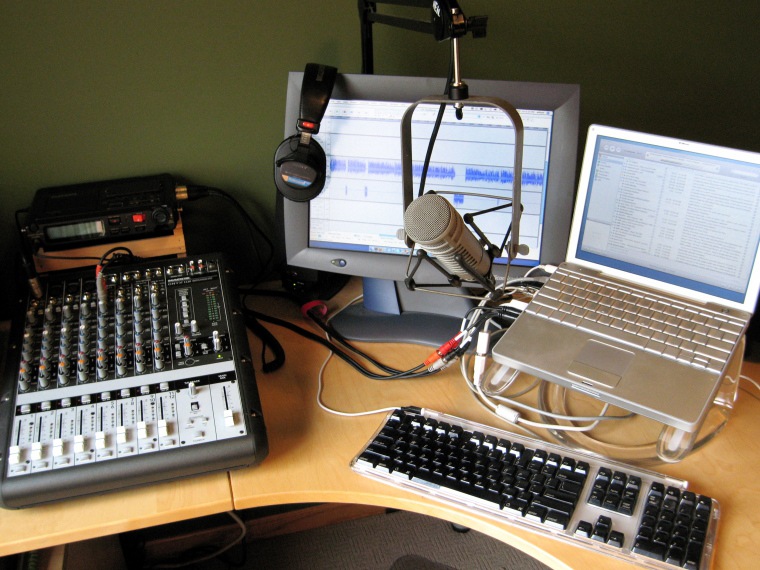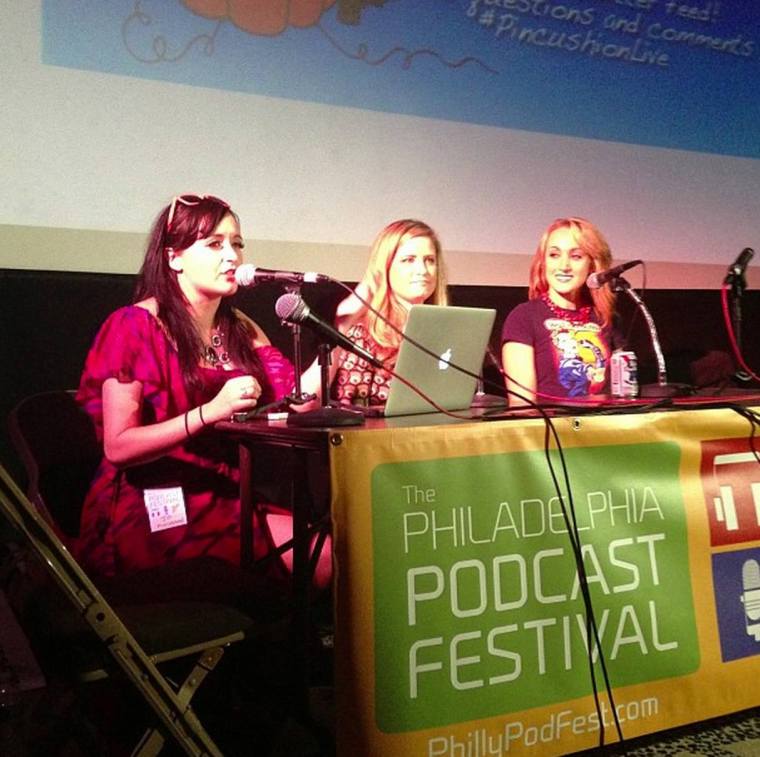July 2013 was a landmark time for podcasting: Apple announced that the iTunes store had reached a milestone of one billion podcast subscriptions. These one billion podcasts consisted of 250,000 unique podcasts in over 100 languages. At the time of the announcement, there were also more than eight million episodes published.
Over the last year, podcasting has continued it’s hot streak. In fact, Edison Research has found about 39 million Americans listen to podcasts each month. Even more interesting is the fact that one in five weekly podcast users listen to six or more podcasts weekly. That means people who enjoy podcasts are digesting a lot of podcasts.
While that’s great news for marketers who are considering the foray into podcasting, this also means there’s a lot of competition out there. Not only do you have to stand out from the competition, you also have to find a way for listeners to make the time for your podcast.
To get your podcast noticed by your audience, you need to optimize it for iTunes. SEJ’s editor-at-large John Rampton recently described this process on Forbes, and here are some of the highlights.
 Image Source: “The Podcave home studio update (179160280)” by Tim Wilson – Flickr: Home studio update. Licensed under Creative Commons Attribution 2.0 via Wikimedia Commons
Image Source: “The Podcave home studio update (179160280)” by Tim Wilson – Flickr: Home studio update. Licensed under Creative Commons Attribution 2.0 via Wikimedia CommonsSEO for iTunes
Just like improving your ranking on search engines, you need to use relevant keywords. Remember searches aren’t as lengthy as they are on Google, so keep keywords concise. You can always use the free Google Keyword Tool for a little assistance with keywords.
Once you’ve discovered the keywords that apply to your podcast, you’ll want to incorporate them into the following fields:
- Podcast title
- Publisher name
- Podcast description
- Podcast episode title and description
Have the Right Equipment and Produce Quality Content
You don’t want to receive negative reviews because you used a cheap microphone. This is why having the proper equipment is so important. You need your podcast to be sound professional.
You also want to make sure that the quality of your content is top-notch as well. Research from Quick Sprout has found that content-rich sites generate 97 percent more links. In other words, if you want podcast users to keep returning every week, then you need to produce quality content.
Ask for Reviews and Subscribers
Reviews are extremely important for podcasts. The more positive reviews your podcasts receives, the higher it will rank. While having a quality podcast is one way to gain reviews, you need to frequently ask your listeners to leave a review.
This is sometimes a problem because they may be on the go while listening. To help them out, create a vanity URL using a WordPress plugin like Pretty Link Lite. If you create a vanity URL you can just ask listeners to visit the site to leave a review during the conclusion of your podcast.
Finally, convert listeners into subscribers. Remind them to subscribe to your weekly podcast on social media outlets, on your blog, email subscribers, etc. When you have more subscribers, iTunes sees this as a sign that you’re sharing that’s valuable.
While that advice is great for getting noticed on iTunes, I want to help you become a bona-fide podcast rock star. And, to help me accomplish this, I decided to pick the brain of an actual podcasting rock star; Philadelphia’s Jo Anna Van Thuyne.
Interview With Jo Anna Van Thuyne
 Image Source: Jo Pincusion at the Philadelphia Podcast Festival. From left to right is N.A. Poe, The Necrosexual, and Jo Pincushion (all from Scrapple.TV).
Image Source: Jo Pincusion at the Philadelphia Podcast Festival. From left to right is N.A. Poe, The Necrosexual, and Jo Pincushion (all from Scrapple.TV).Hey Jo Anna. First and foremost, can you tell everyone a little bit about yourself?
Hi! My name is Jo Anna Van Thuyne, but most of Philadelphia knows me as Jo Pincushion. I’m an actress, comedian, producer, blogger, social media manager, and copywriter. I’ve had a number of creative outlets over the years, and I produced a podcast called “The Pincushion Podcast.”
How long have you been podcasting?
I started The Pincushion Podcast around August of 2012. I was looking for another way to get my content and my personality out into the internet.
What made you want to podcast in the first place?
At first, I was approached by an online radio station to create an hour-long show. The show would’ve been broadcast once a week around 1 a.m. It didn’t seem worth it–so I thought…why not just start a podcast?
What are some of the trials and tribulations involved with podcasting?
I’m going to be straight up–podcasting is not easy. Since I was hosting, producing, editing, and distributing my podcast it took about 10 hours a week to successfully produce. Depending on the type of production quality you’re going for podcasts can be a ton of work, but it’s very worth it.
Do you have success stories? For example, have you increased traffic or gotten any leads?
When I started The Pincushion Podcast, I was looking for a way to express myself creatively in a new way. For awhile, I was blogging and filming comedic interview segments at local conventions–but I wanted to show my audience another side of myself. I also wanted to take control of my brand.
My podcast depended on collaboration. I always had various “co-hosts” that would discuss an array of topics. I also made it a point to have a musical guest and a special guest on the show every week. I found when you collaborate with others and take the time to recognize other work– your audience grows and so does your network of resources. It really helped my career in tremendous ways. My website traffic increased, people were talking about my podcast and it helped introduce me to the wonderful people I work with at Scrapple.TV.
My podcast not only helped me gain notoriety, but it also gave me a voice. People come to me with all kinds of advice when it comes to podcasting and content creation. When people actually hear your voice they respond to the information differently than they would read it in an article. It’s more personal to them when they hear you talk, and that’s something that makes podcasting really worth it.
When you wrap up a podcast, how do you distribute it? What are some of your favorite tools of the trade?
The distribution of The Pincushion Podcast changed a bit over the years. Originally, I was posting episodes on Podomatic. It’s an easy way to publish your podcast when you’re first starting out. The service is very user-friendly, and it makes your podcast accessible to iTunes and other RSS options.
As my podcast grew, the room on my Podomatic account shrunk. I had a really great website that I updated through WordPress, so I wanted to start housing my podcast episodes onto this server rather than Podomatic’s. A friend of mine recommended Blu Brry Podcast Powerpress, and I’m so glad he did. I now upload podcast episodes directly to my WordPress, and my iTunes feed updates automatically.
How do you advertise your podcast once it’s out there?
Get creative when it comes to advertising. If you have the listeners then you have people willing to sponsor you. Sometimes the leads will come to you–but most of the time you have to find the leads yourself.
You can also try submitting your podcast to Audible. A really successful podcast has a lot of potential to make money.
Any other tips you’d like to share with podcasting newbies?
Make a plan, stick to it, and work hard.
Conclusion
If you want to become a podcast rock star, then make sure that your podcast has been optimized for iTunes. This means using relevant keywords in your title and description, as well as having the right equipment. Mick Jagger doesn’t use some random dollar store mic, and neither should you. Also, make sure you produce quality content and ask for reviews and subscribers.
Finally, remember that podcasting is going to take a lot of work. Between planning, recording, editing, and distributing your podcast, you’re going to have your hands full. However, if you stick with it and put in the time, you’ll be able to gain more exposure and find your voice.
Featured Image Source: “Above & Beyond at Trance Energy 2010” by Anjunabeats – Anjunadeep. Licensed under Creative Commons Attribution-Share Alike 3.0 via Wikimedia Commons




